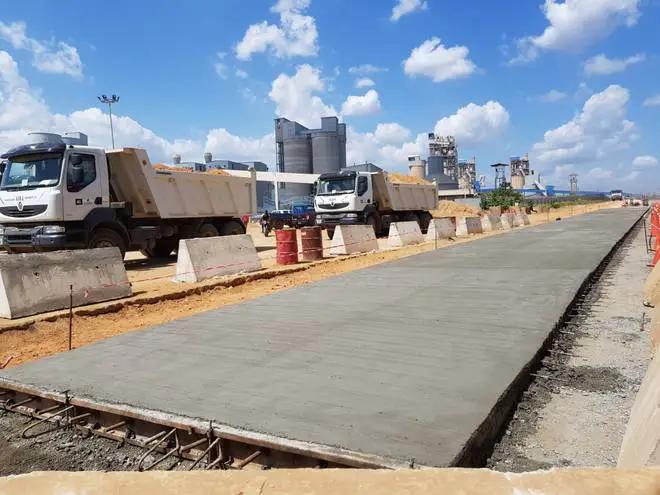The Federal Government is contemplating discontinuing numerous abandoned projects valued at approximately N6 trillion, which were inherited from previous administrations and lack clear funding sources.
The Minister of Works, Dave Umahi, made this announcement during a briefing with State House correspondents after a meeting with President Bola Tinubu at the Presidential Villa in Abuja.
Umahi disclosed that President Bola Tinubu has approved the use of concrete technology instead of asphalt for national road construction and rehabilitation.
READ ALSO: FG urged to utilize pension funds in bridging infrastructure gap
Additionally, the President has endorsed several road construction initiatives and plans to implement tolls on certain roads across the country.
Umahi argued that concrete would be a more durable and cost-effective option compared to alternatives. He urged all contractors working in Nigeria to adhere to global best practices.
He also emphasized that contractors should complete their projects within a four-year timeframe.

The minister expressed dissatisfaction with projects that have been ongoing for as long as 20 years, citing poor workmanship, the importation of substandard bitumen, and inadequate asphalt thickness as some of the reasons for road failures.
Umahi assured that the introduction of concrete road technology would offer roads with a 50-year period free of maintenance. He mentioned that if contractors do not cooperate for redesign using concrete technology, the ministry will demand a performance bond.
Furthermore, the minister advised contractors working in the North-east not to report him to the president, emphasizing that he is aware of the issues.
READ ALSO: Umahi Allocates N431bn for Federal Road Dualization
He stated that he is taking direct instructions from President Tinubu, who is keen on adopting concrete technology for road construction as part of his legacy.
Umahi pledged to address longstanding problems and uphold engineering best practices to deliver long-lasting infrastructure projects in Nigeria.
READ ALSO: Residents and Property Owners in Agbara Count Losses After Perennial Flooding





